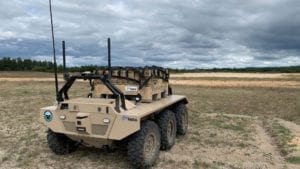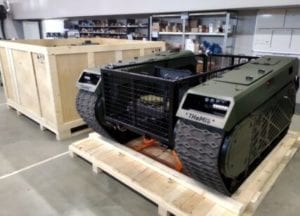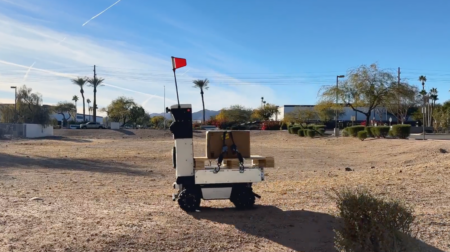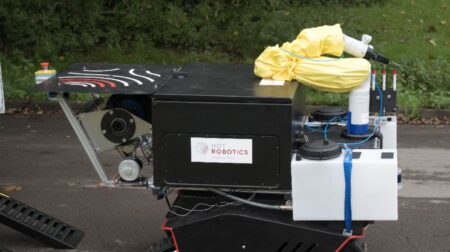The UK’s Defence Science and Technology Laboratory (DSTL) has announced the purchase of five new autonomous land vehicles.
Two contracts collectively worth more than £5m have been awarded to automotive engineering and development consultancy Horiba MIRA and defence technology company QinetiQ to produce a number of unmanned ground vehicles (UGVs) and enabling autonomous systems as part of advancing the UK Ministry of Defence (MOD) Transformation Fund commitments for the British Army.
Project Theseus, the development and operational field experimentation of autonomous logistic resupply systems, was announced by UK defence secretary, following the progress made by the Innovative Autonomous Last Mile Challenge led by DSTL.
The contracts form part of early de-risking work to increase the MOD’s understanding of the capabilities and limitations of these systems in areas such as mobility, vulnerabilities and safety; enabling the British Army to take the project to the next stage, pending a further competition for Project Theseus to be launched by Defence Equipment and Support, the MOD’s trading entity and joint-defence organisation, later this year.

DSTL’s autonomy lead, Peter Stockel, said: “These contracts are a demonstration of the continued commitment to progressing autonomous systems as innovative approaches for developing future land force logistic capability.
“These UGV systems will be used to undertake a series of technical evaluations and user utility assessments with the British Army and other users to rapidly advance MOD’s understanding under the ‘Prototype Warfare’ agenda.”
Summer 2020 will see the arrival of three all-terrain Viking 6×6 UGVs, supplied by Horiba MIRA, which are capable of carrying up to 750kg of supplies to frontline troops using AI-based autonomy with GPS-denied navigation.
Andy Maloney, chief engineer for defence and unmanned solutions at Horiba MIRA, said: “Our Viking platform could revolutionise how critical supplies are delivered to front-line soldiers, especially in combat scenarios, where it could dramatically reduce the risk to life.”
Milrem Robotics will supply two UGVs to DSTL in partnership with QinetiQ, who will integrate autonomous functions to the vehicles and arrange transfer to the end user.
“The United Kingdom has a clear view on the importance of robotics on the battlefield and its impact on defence capabilities,” said Kuldar Väärsi, CEO of Milrem Robotics.

Experimentation and testing of these differing systems will inform further understanding of the capabilities that these autonomous systems can provide and implications for their integration with the wider defence logistics system.
The vehicles will be used by DSTL to conduct scientific and user trials in collaboration with the Combat Service Support Training and Development Unit based in Aldershot, and other British Army units.
The work will seek to increase understanding of system potential and limitations to reduce the risks specific to acquisition of the Joint Tactical Autonomous Resupply and Replenishment capability, as well as to develop deeper knowledge for the British Army’s future employment of more advanced autonomous system capabilities.







